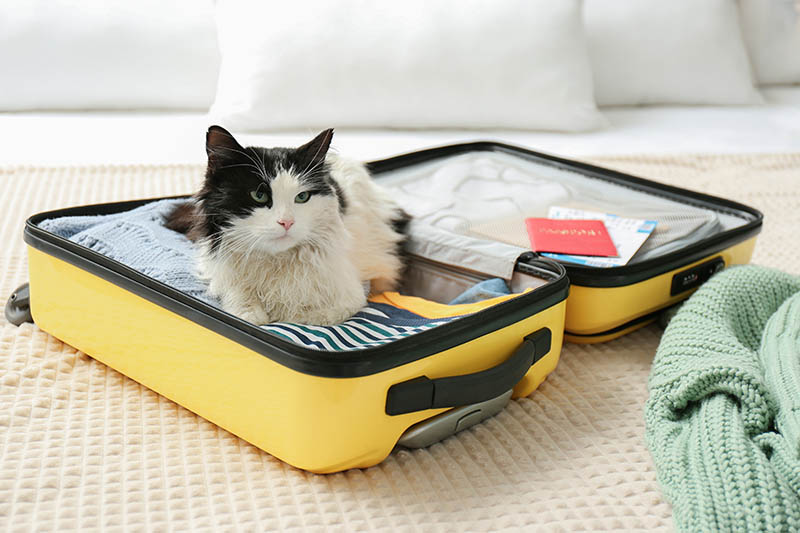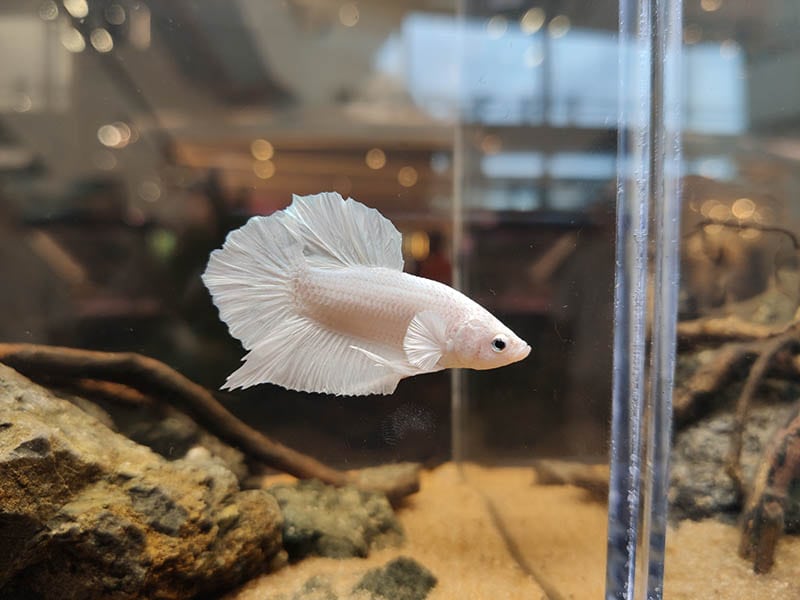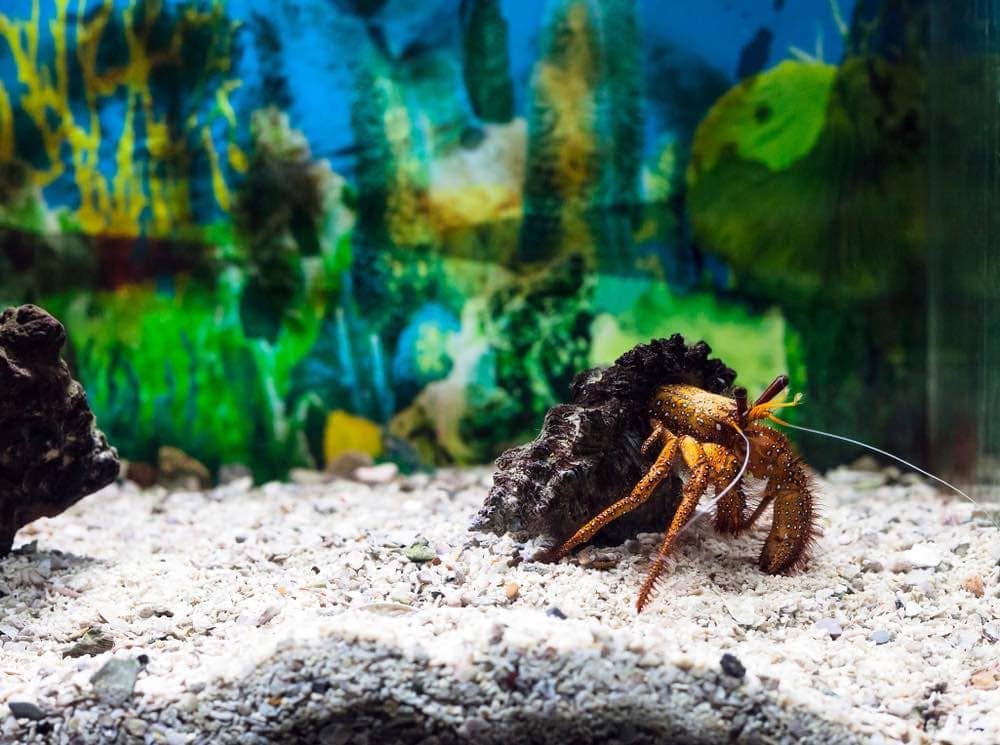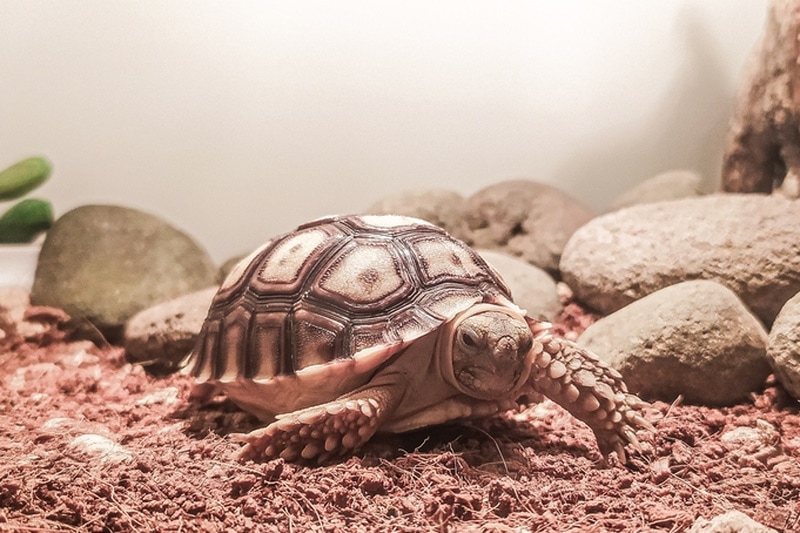9 Best Pets for Frequent Travellers (With Pictures)

By Misty Layne
Updated on

Click to Skip Ahead
Pet ownership is a huge responsibility. It’s not only a matter of being able to afford everything your pet will need, from food to healthcare. You also need to be sure you can spend plenty of time with your pet, engaging them in play and bonding with them. And you have to ensure that if you need to leave them at home at any point while you’re traveling, they’re receiving the care required to keep them healthy.
This can be disheartening for those who are frequent travelers but also crave the love and companionship a pet brings.
But there’s good news for those who travel often! There are some pets you can get that will do well with your schedule, whether because they’re easy to travel with or they can be safely left behind during your journeys. Here’s a look at nine of the best pets for frequent travelers!
The 4 Pets You Can Travel With
If you’re a frequent traveler but are able to bring a pet with you while you’re on the road, check out one of these pets. These animals tend to do well with traveling (though some are limited to car travel only), so you won’t have to worry about arranging pet care while you’re gone.
1. Cats

Cats can be good travel companions, but it depends on the individual cat. Felines can be more chill when it comes to traveling regularly; they’re generally quiet and are often allowed on planes (and sometimes even trains). But there are downsides to traveling with your cat, too.
One is the need for a litter box. Not only can these be a pain to transport, but if you’re on a long journey in a car, your pet will need to use one at some point, which is its own complication. Another reason traveling with a feline may not work well is that some cats dislike being in carriers, as it stresses them out. And if your pet gets out of their carrier, they’ll have a much easier time getting lost than a larger animal would.
- Can be more relaxed about regular traveling
- Usually allowed on planes and occasionally on trains
- Generally, a quiet travel companion
- Cats need litter boxes
- Some cats get stressed in carriers
- Easy for them to get lost if they escape their carrier
2. Dogs

Canines are common travel companions and tend to do well on the road. Dogs are also one of the easiest animals to travel with. Not only are they allowed on most airlines, but the world is fairly dog-friendly, so these pets are often allowed in hotels, public spaces, and even restaurants. Of course, it will be easier to travel with a small breed dog rather than a large or giant breed; you may also want to avoid dogs with flat faces (like Pugs) who have a tendency to overheat, which can lead to breathing problems.
Some dogs, of course, may not enjoy traveling, so be aware of that. You’ll also need to train your dog before you take them on the road so they’re potty-trained and won’t chew on anything in hotel rooms you stay in. Also, factor in the amount of supplies a dog will need on the road, including food and water bowls, leashes, harnesses, food, and toys!
- Easy to travel with
- Allowed on most planes
- Allowed in a majority of places, such as hotels and restaurants
- Some breeds aren’t as easy to travel with or won’t like traveling
- Dogs will need to be trained before you hit the road
- Dogs need a lot of supplies while traveling
3. Rabbits

Rabbits might seem an odd travel companion, considering their reputation for being skittish and getting easily stressed. But these quiet creatures can make excellent companions when you’re on the road; they don’t require a lot, and they’re easy to clean up after. You’ll just need to do some preparation before you go to ensure your pet is used to its carrier and won’t be anxious about being in it for a while. Of course, mellow rabbits will be easier to take along on a trip than ones that are high-strung, so the ease of travel will depend on the individual rabbit.
These animals are allowed on some airlines, but not all, so you’ll be relegated to mostly road trips with your bunny.
- Quiet
- Easy to clean up after
- Allowed on some planes
- Not allowed on all airlines, so you’ll mostly be road-tripping
- High-strung bunnies won’t enjoy being on the go
4. Rodents

The smaller the animal, the simpler it is to travel with them, as smaller animals need less space and supplies while on the road. So, why not get a rodent? Rats, mice, chinchillas, hamsters, gerbils, and guinea pigs can all make wonderful travel companions. However, you probably can’t bring these animals (at least some of them) on a plane, so you may need to stick to car travel with one of these pets.
You’ll also need to check the regulations of where you’re staying during your journey to be sure rodents are allowed in the room. Some hotels may not want rats or mice hanging around, no matter how cute and tame they are.
- Small and easy to transport
- Require fewer supplies while on the road
- Probably not allowed on planes
- May not be allowed in hotels or rentals
The 5 Pets You Can Leave at Home
If you can’t take a pet on the road with you or don’t particularly want to travel with an animal, there are still pets you can have that can be left at home while you’re away that need less day-to-day care. They may not be cute and fuzzy, but they still make wonderful companions!
5. Betta Fish

Fish are low-maintenance pets, and betta fish are no different. All you need for these animals are a tank or bowl, clean water, and food! So long as you aren’t gone so long that your betta’s water gets dirty and you either have someone coming by to feed them or have set up an automatic feeder, you can leave these pets alone for weeks at a time.
Male betta fishes don’t get along and will fight, so don’t have two in one bowl or tank. Female betta can be housed together; however, they need a larger tank, so they have their own space. This makes traveling with more than one betta fish a bit more complicated.
- Low-maintenance
- Can stay on their own for weeks at a time
- Don’t live long
- Male bettas can’t stay together
- Still need to be fed and have clean water
6. Hermit Crabs

If you’re considering a pet, chances are a hermit crab isn’t the first animal to pop into your head. But these tiny, adorable creatures are incredibly low-maintenance and easy to care for, so they make lovely pets for those constantly on the go. Hermit crabs don’t need much—just a terrarium, bedding, and food—and can live anywhere from 5 to 40 years.
Again, your pet will need to be fed when you’re on the road, and someone will need to keep an eye on the humidity of your pet’s terrarium to ensure it’s where it needs to be. And if you’ll be gone longer than a month, your hermit crab’s enclosure will need to be cleaned. But overall, this is one pet that’s fairly easy to deal with.
- Easy to care for
- Don’t require much
- Can live for quite a while
- Need to be fed while you’re away
- Someone will need to check the humidity of your pet’s enclosure
- If gone more than a month, someone will need to clean your pet’s terrarium
7. Snakes

Admittedly, snakes aren’t for everyone, but a snake could be the perfect pet if you don’t mind reptiles. While younger snakes need to eat a couple of times a week, adult snakes, for the most part, can go up to a week without food if fed right before you leave. Some snake breeds will even be able to go without eating for up to two weeks. You’ll need to leave plenty of water in their enclosure for when you’re gone, though.
The other main concern for snakes is the set-up of their enclosure. Snakes will require lights and heaters, so if you’re not home, these will need to be set to timers so that your snake is still getting the proper environment to maintain its health.
- Don’t need to eat often
- Can be left for one to two weeks on their own (depending on the breed)
- Snakes aren’t for everyone
- Lights and heaters for your snake’s enclosure will need to be set to timers to keep your pet’s environment as it should be
8. Tarantulas

This is another animal that definitely isn’t for everyone, but if you’re cool with the idea of giant spiders in your home, a tarantula can make a good pet. They’re another low-maintenance critter that can do well on their own without being fed. Adult tarantulas can go a week without being fed so long as they have water. And these spiders can live for a long time (up to 20 years for females!).
However, having a tarantula in your home may put a damper on your social life if you have friends and family who are arachnophobes. Tarantulas are also fairly hands-off pets, so if you’re looking for an animal you can handle or play with, this isn’t the pet for you.
- Low-maintenance
- Adults only need to eat once a week
- Can live a long time
- Not the pet for everyone
- May freak out people visiting your house
- A hands-off pet
9. Tortoises, Turtles, Terrapins

What’s the difference between a tortoise, turtle, and terrapin? Turtles are omnivorous sea creatures, tortoises are herbivorous land-dwellers, and terrapins are small turtles that live in freshwater. They can also make excellent pets for those who travel a lot. These animals live for an extremely long time (25 years and up) and don’t require a lot of food. Each has a different diet and tank requirements, though (and those tanks can need more cleaning than you’d think). These animals are also very hands-off pets that you can’t really interact with.
Other than that, you should be aware that these animals can carry and pass on salmonella, so you’ll have to be careful with them.
- Don’t need a lot of food
- Live for a long time
- Tank maintenance may be more than you expect
- Not very interactive pets
- Can carry and pass salmonella
Conclusion
You can still have a pet even if you’re on the road often. The type of pet you can deal with when it comes to frequent travel depends on whether you want to take your pet with you or leave them at home. Some animals are fairly easy to bring along when you need to take a trip and make wonderful companions on the road. Other pets can be left at home alone for a while without having someone around to check on them.
Whatever pet you choose, be sure you’re up for the responsibility of caring for them on and off the road before committing!
Featured Image Credit: New Africa, Shutterstock











